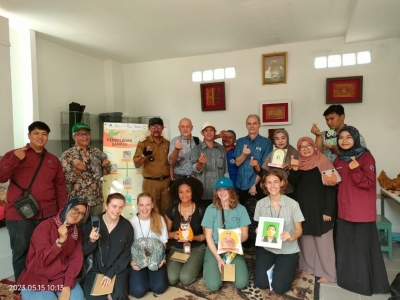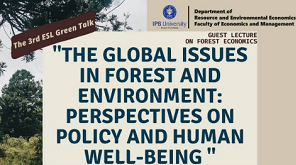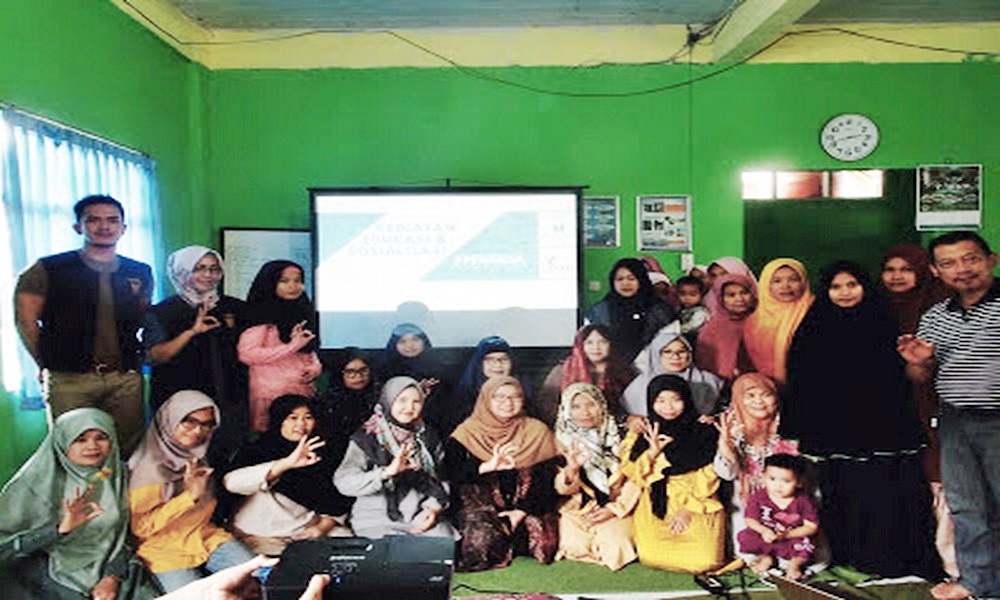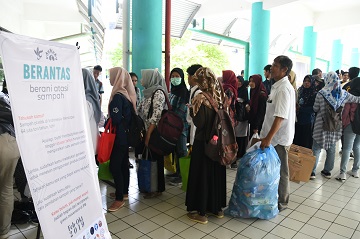 A representative delegation of lecturers and students from the University of British Columbia (UBC), Canada visited the waste processing centre in the village assisted by the Department of Resource and Environmental Economics (ESL), Faculty of Economics and Management (FEM) located in Cibanteng Tourism Village, Ciampea, Bogor.
A representative delegation of lecturers and students from the University of British Columbia (UBC), Canada visited the waste processing centre in the village assisted by the Department of Resource and Environmental Economics (ESL), Faculty of Economics and Management (FEM) located in Cibanteng Tourism Village, Ciampea, Bogor.
Mr Chris Bennett, a lecturer from UBC, shared his views on one of the products processed from plastic waste in the village, ecobricks."Ecobrick products that use plastic packaging waste cannot be sold again at the collector, but this plastic packaging waste has a new value," he said.
The UBC students were very enthusiastic, as evidenced by their questions and curiosity about tourism activities in Cibanteng Village. They visited the location of the waste donation centre and saw the handicraft products.
ESL IPB University lecturers involved included Dr Meti Ekayani and Ir Nindyantoro, MSP. Dr Meti, who is also the coordinator of the service activity, explained the beginning of the establishment of tourism in Cibanteng Village. She said that the formation of tourism in this village could not be separated from the support of the ESL Department of IPB University with intense assistance.
"However, it will not run smoothly without the support of the local village," she said recently.
Chairman of the Village-Owned Enterprise (BUMDes), Mukhlis explained the technical processing of plastic waste in Cibanteng Village."There are two focuses of plastic waste processing, namely making handicraft products and building material products. The flow is that for craft products, the plastic waste that has been collected is cut into small pieces (ecobricks) and then used for pillow filling," said Mukhlis.
Furthermore, he explained, for the flow of building material products, plastic waste enters through a shredding machine then melted in a moulding machine then pressed into products according to the shape such as paving blocks.
"For the combustion process, it has been accommodated using a condensation machine, so it is environmentally friendly," he added.
Mukhlis revealed that the marketing of paving blocks has been sold to a State-Owned Enterprise (SOE) company, namely PLN Muara Tawar. As for ecobrick pillows, he claimed to have sold more than 100 pieces, both through online shops and offline from various agencies.
In addition, the participants were also given an explanation of organic waste management with Sukatma. Organic waste received from households is processed using maggot. Some of the maggots are roasted for sale and some are used as fish feed.
"There is also organic waste that is processed into liquid organic fertiliser. While fruit waste is used to make soap," she added.
The tailoring training was also taught to the participants by Ayu, a resident of Kebon Kopi, using products made from inorganic waste to produce useful products.
Another Kebon Kopi resident who helped build the village with the ESL Department of IPB University is Andi, the owner of Rumah Kopi Sanggabuana. Andi said that there are five tour packages in Cibanteng Village, namely inorganic tourism, organic tourism, vineyard tourism, urban farming tourism and coffee education tourism.
"On behalf of the Cibanteng Village government, I would like to thank and be proud of the arrival of students from Canada," said Cibanteng Village Head, Warso, SSos, MM, in response to the visit of UBC students and lecturers to his village.
This visit is a series of Summer Course programmes organised by the Department of Economics (IE) FEM IPB University in collaboration with UBC throughout May 2023. (aiz/Rz) (IAAS/RUM)







